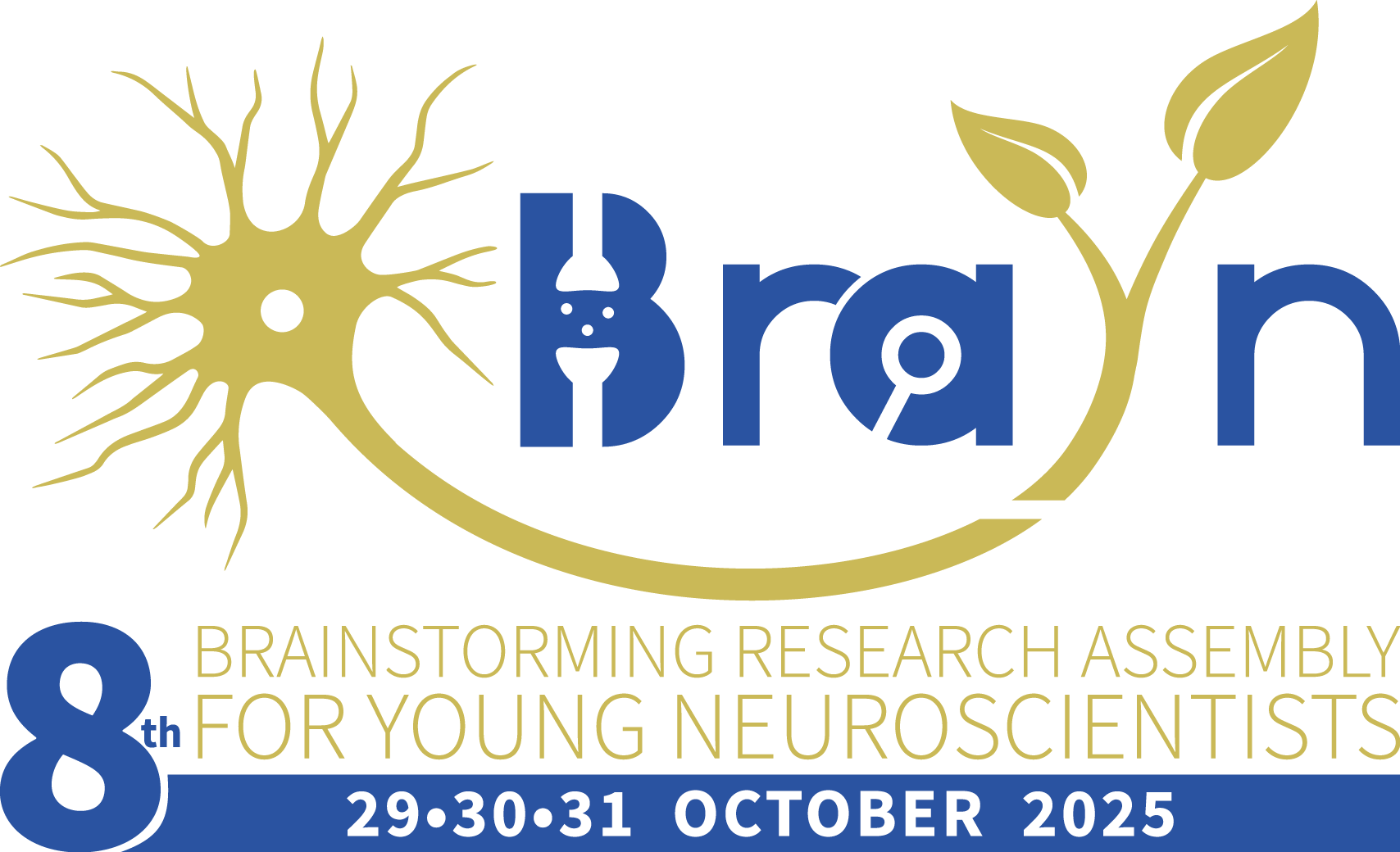The BraYniacs
THE BRAYNIACS
– Abstract selection and poster evaluation –
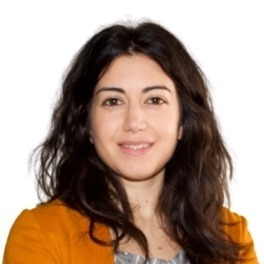
Federica Anastasi
(Tap/Click on the name to see the bio sketch)

Federica Anastasi
BarcelonaBeta, Brain Research Center (BBRC) (Spain) • Dr. Federica Anastasi achieved a Master Degree in Chemistry and Pharmaceutical Technologies in 2016 and after graduating she obtained a four-year full PhD fellowship at the Scuola Normale Superiore di Pisa. During her PhD she developed high-sensitivity mass-spectrometry based proteomics methods for the early discovery of circulating biomarkers of neurodegeneration. Currently, she is a postdoctoral researcher in the group of Fluid Biomarker and Translational Neurology at the BBRC in Barcelona where she is studying the molecular mechanisms that link ageing with neurodegeneration. She is also a visitor researcher in the mass-spectrometry laboratory of the Centre for Genomic Regulation where she uses state-of-the-art proteomics methods to identify novel therapeutic targets for Alzheimer's disease pathology.
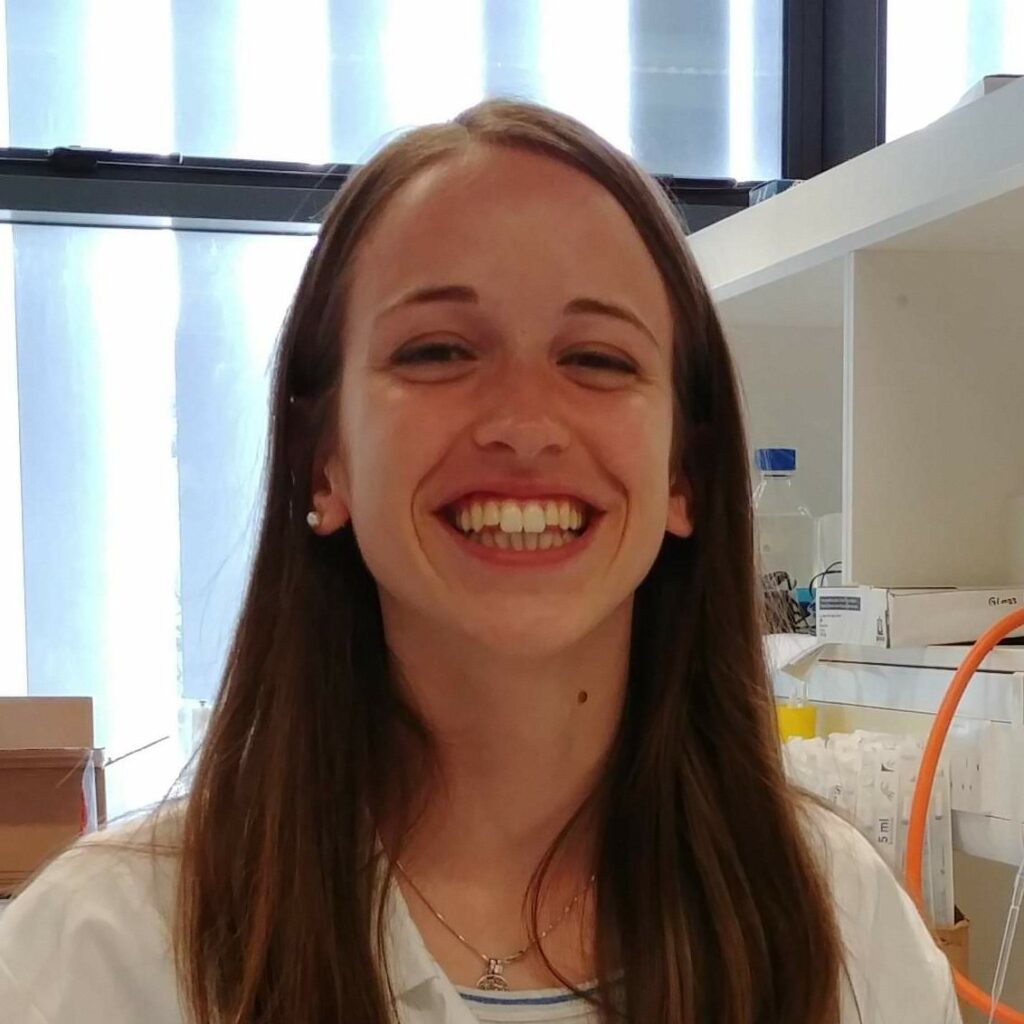
Ingrid Battistella
(Tap/Click on the name to see the bio sketch)

Ingrid Battistella
Department of Cellular, Computational and Integrative Biology, Università degli studi di Trento (Italy) • Ingrid obtained her Bachelor's Degree in Biotechnology at the University of Udine. Seeking to augment her expertise, she embarked on a traineeship in the laboratory of Noel Caplice in Cork, Ireland. Then, she pursued a Master's Degree in Cellular and Molecular Biotechnology at the University of Trento in 2021, working in Luciano Conti's laboratory. Ingrid continued her education in the same lab by enrolling in a Ph.D. program in Biomolecular Sciences. Her areas of study are centered toward modeling neurological disorders using cellular systems based on hiPSCs, with an emphasis on identifying the molecular and cellular abnormalities that characterize these conditions.
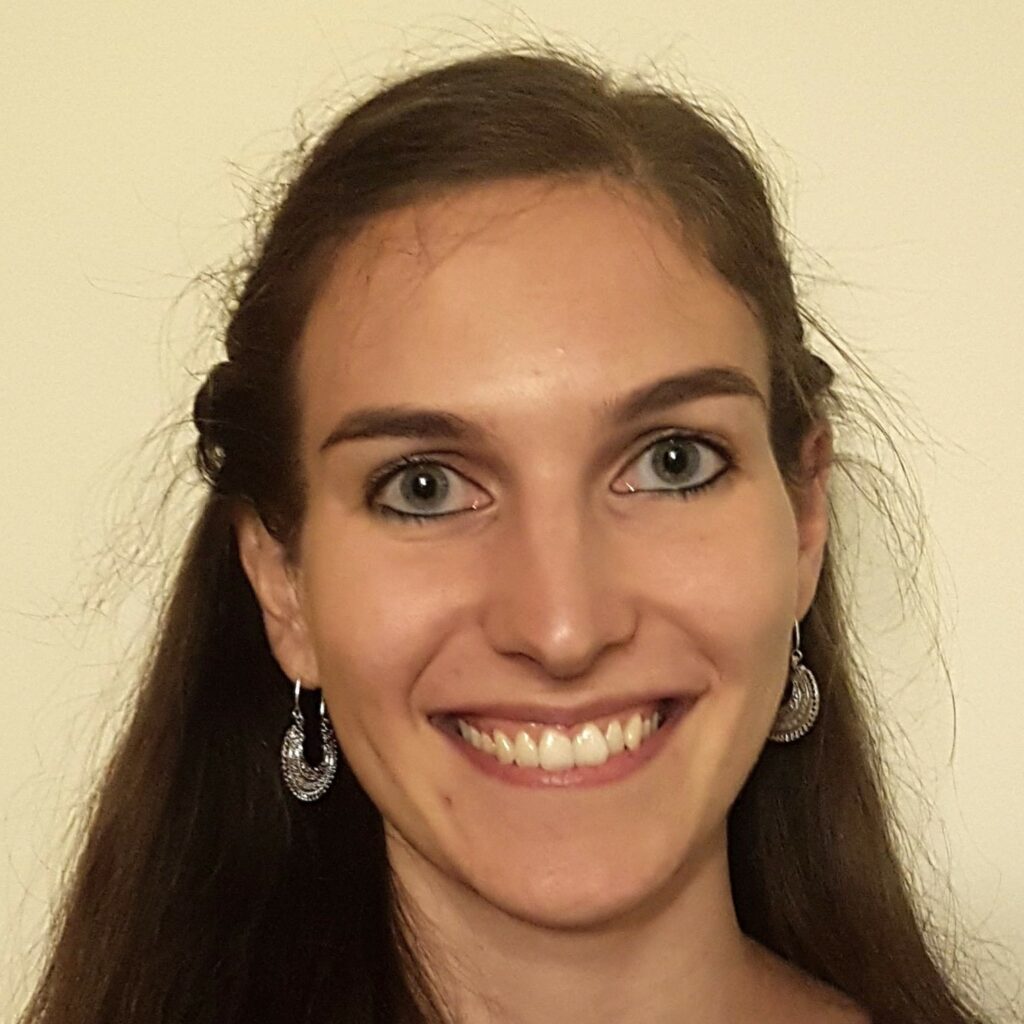
Elisabetta Battocchio
(Tap/Click on the name to see the bio sketch)

Elisabetta Battocchio
Neuroscience Institute - National Research Council of Italy, Milan (Italy) • Elisabetta Battocchio is a research fellow at the CNR institute of Neuroscience of Milan. She obtained her Master’s Degree in Pharmacy at the University of Milan in 2019, working during her thesis at the IRCCS Istituto di Ricerche Farmacologiche Mario Negri. Then, she started a one-year research fellowship at the University of Milan Bicocca. In 2020 she enrolled in the Neuroscience PhD program at the University of Milan Bicocca, carrying out her project in the laboratory of Dr Claudia Verderio at the IN-CNR of Milan, and obtaining her PhD in 2023. Her studies revolve around Alzheimer’s disease from her MSc thesis where she investigated the interaction between purified β-amyloid and tau protein thanks to Surface Plasmon Resonance. Then, she moved to in-vitro primary neuronal and microglial cell cultures during her PhD project, focusing on the role of large microglial extracellular vesicles (EVs) in tauopathy and synaptic dysfunction in the context of Alzheimer’s disease. She is currently working in the laboratory of Dr Fabrizia Guarnieri, studying how genetic and environmental factors interacts to increase the risk of developing sporadic AD.
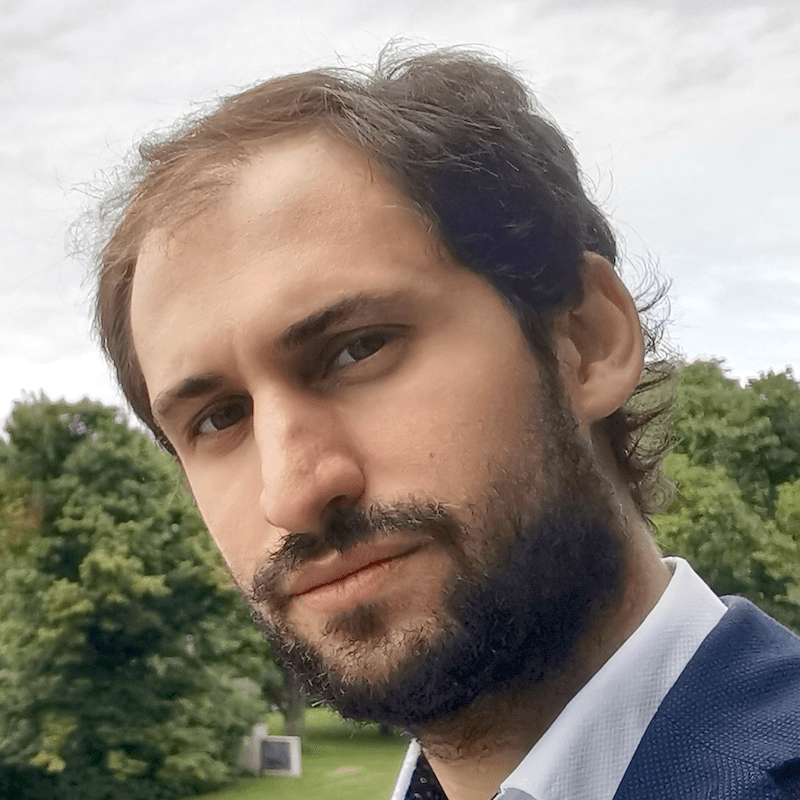
Alessandro Bombaci
(Tap/Click on the name to see the bio sketch)

Alessandro Bombaci
IRCSS Policlinico San Donato, San Donato Milanese (Italy); Vita-Salute San Raffaele University, Milan (Italy) • Alessandro Bombaci is a neurologist and PhD candidate at the Department of Neuroscience "Rita Levi Montalcini" of the University of Turin. He graduated in 2015 from the San Luigi Gonzaga faculty (Orbassano) of the University of Turin with a thesis entitled "". He subsequently attended the Specialization School in Neurology. His interest in research began in the first year of medicine, where he undertook a 2-year internship at the Neuroscience laboratory directed by Professor Robecchi and Professor Geuna, and for the following 2 years, an internship at the Neuroscience laboratory of the NICO Center directed by Professor Rossi. Subsequently, from the first year of specialization and throughout the PhD, he served as a member of CRESLA (Regional Expert Center for ALS Care), directed by Professor Chiò, conducting clinical and translational research in the field of motor neuron diseases and frontotemporal dementias. In 2019, he completed a fellowship at the MND Centre of University College London, under the guidance of Professors P. Fratta and A. Malaspina, focusing on projects related to the search for fluid biomarkers in motor neuron diseases and Kennedy's disease. He has participated in more than 20 national and international neurological congresses, both as a moderator of scientific sessions and as a presenter of posters and oral communications. He is a member of the SIN study group on ALS and FTD, RRFS representative on the EAN Scientific Panel "ALS and frontotemporal dementia," national representative on the EAN Scientific Panel on Palliative Care. He has passed the European Examination in Neurology of the EAN. He has participated in more than 10 international clinical trials on motor neuron pathologies. He was a Guest Editor of a Special Issue in Frontiers in Neuroscience (Title: Bridging the Gap between Basic Neurosciences and Clinical Neuroimmunology). He has experience in coordination, acquired over the years both by serving as national coordinator of the young neurologists section of SIN and as a student and neurology resident representative at the department of neuroscience and academic senate of the University of Turin, and as a member of the board of directors of the youth section of the Turin Academy of Medicine. His scientific interests focus on the study of motor neuron diseases and, in particular, translational studies.
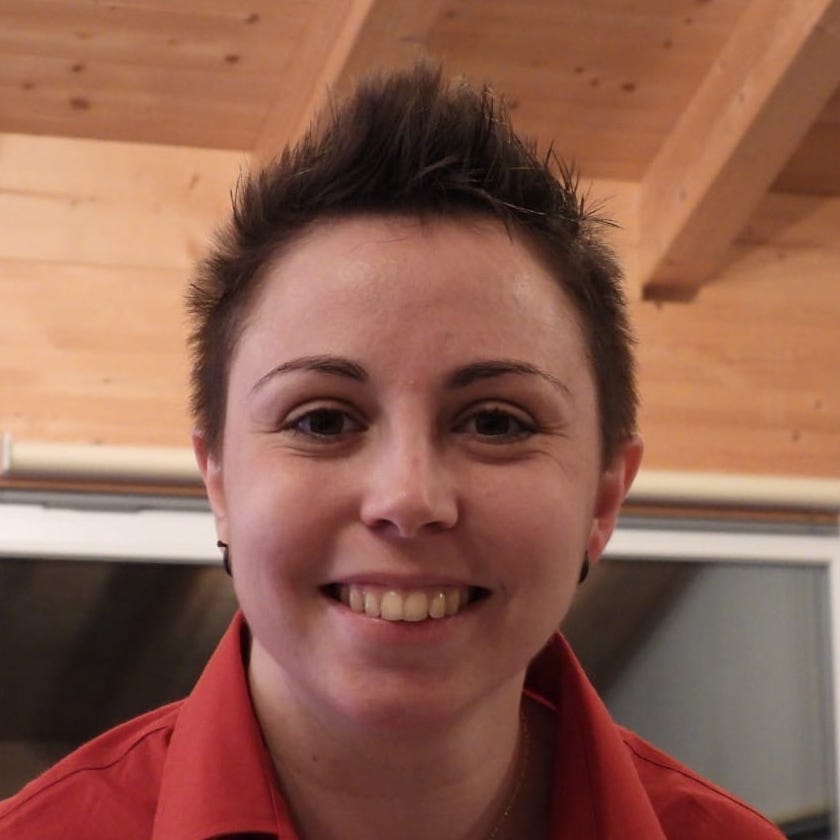
Sveva Bonomi
(Tap/Click on the name to see the bio sketch)

Sveva Bonomi
Department of Science and High Technology, University of Insubria, Via Manara 7, 21052, Busto Arsizio, Varese (Italy); Escuela de Doctorado, Universidad Católica de Valencia, San Vicente Mártir, 46001 (Spain) • Born in Domodossola (VB) on February 18th, 1997, I hold a master's degree in Biomedical Sciences from the University of Insubria, with a thesis entitled “A new artificial intelligence drug repurposing approach” supervised by Prof. Mauro Fasano. Currently, I am a PhD student in Experimental and Translational Medicine, working on bioinformatics-driven drug repurposing for fibromyalgia—a project rooted in my M.Sc. thesis and personal experience as a patient. My PhD is in cotutelle between the University of Insubria (Prof. Tiziana Alberio) and the Catholic University of Valencia (Prof. Elisa Oltra). My research focuses on addressing unmet medical needs in fibromyalgia by leveraging bioinformatics and machine learning. During my first year, I conducted an in-depth review of the pathophysiology of fibromyalgia, identifying the need for high-quality, large-scale datasets to develop robust predictive models. Participation in the "Controversies in Fibromyalgia" congress (Brussels) and the AISF National Congress emphasized the critical importance of establishing a national patient registry. I aim to contribute to this initiative by applying computational tools to classify syndromic profiles, identify core symptom signatures, and optimize treatment strategies. For example, clustering patients by features such as age at diagnosis and disease severity can highlight a 'primary fibromyalgia' profile and explore the impact of sleep quality on disease progression. Leveraging AI and omics data, my work seeks to advance drug repurposing algorithms based on patient outcomes, enhancing both research and clinical care for fibromyalgia.
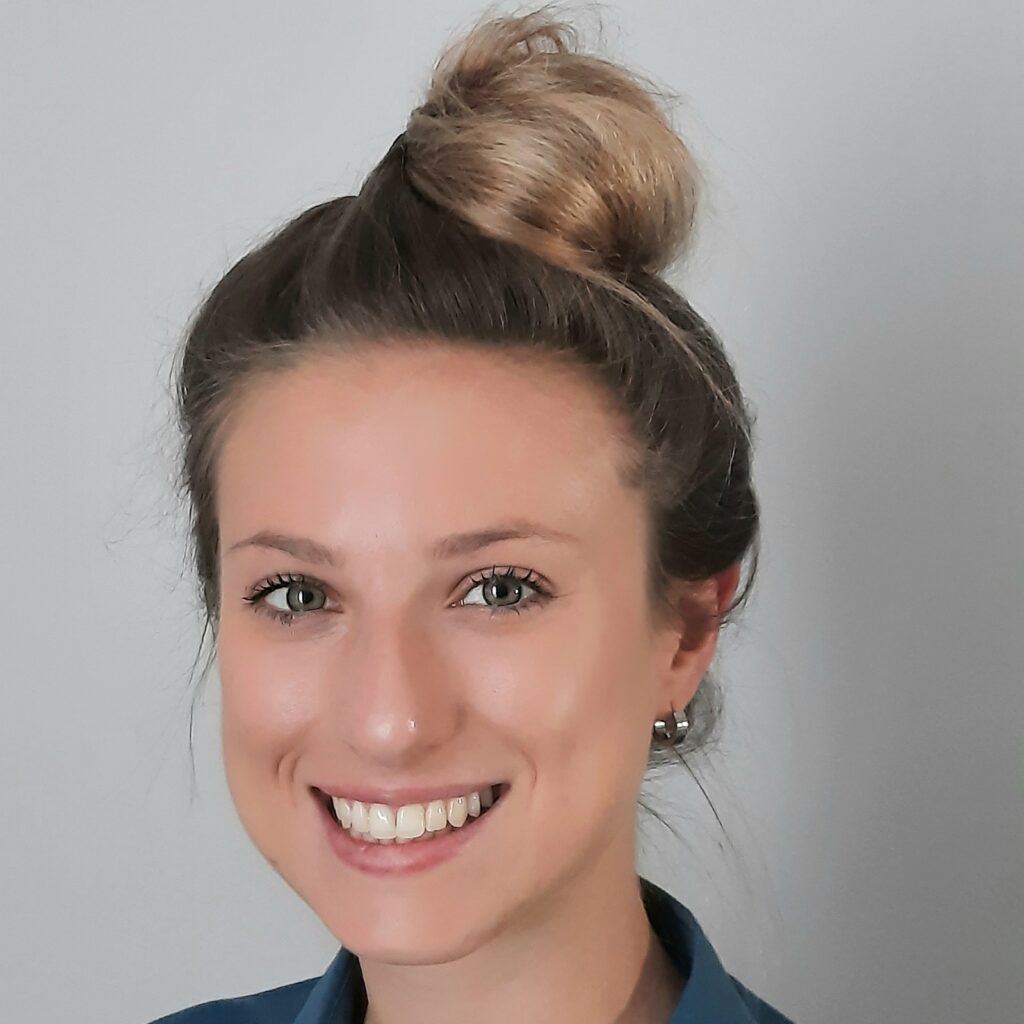
Giulia Borgonovo
(Tap/Click on the name to see the bio sketch)

Giulia Borgonovo
Scuola Normale Superiore (Italy) • Giulia Borgonovo is a Ph.D. student in Neuroscience at the Scuola Normale Superiore, in Pisa, currently working in Prof. Antonino Cattaneo’s lab. Her project focuses on the relationship between neurotrophins and microglia, the innate immune system of our brain. She obtained her bachelor’s degree in Biotechnology at the University of Genoa, working on platinum nanoparticles’ interactions with cortical neurons, in Prof. Fabio Benfenati’s lab at the Italian Institute of Technology. She then pursued her master’s degree in Neuroscience at the University of Pisa and in parallel a Second Level Master's in Neurobiology at the Scuola Normale Superiore, with a thesis on the effect of an NGF-based treatment on astrocytes in Rett syndrome mouse models.
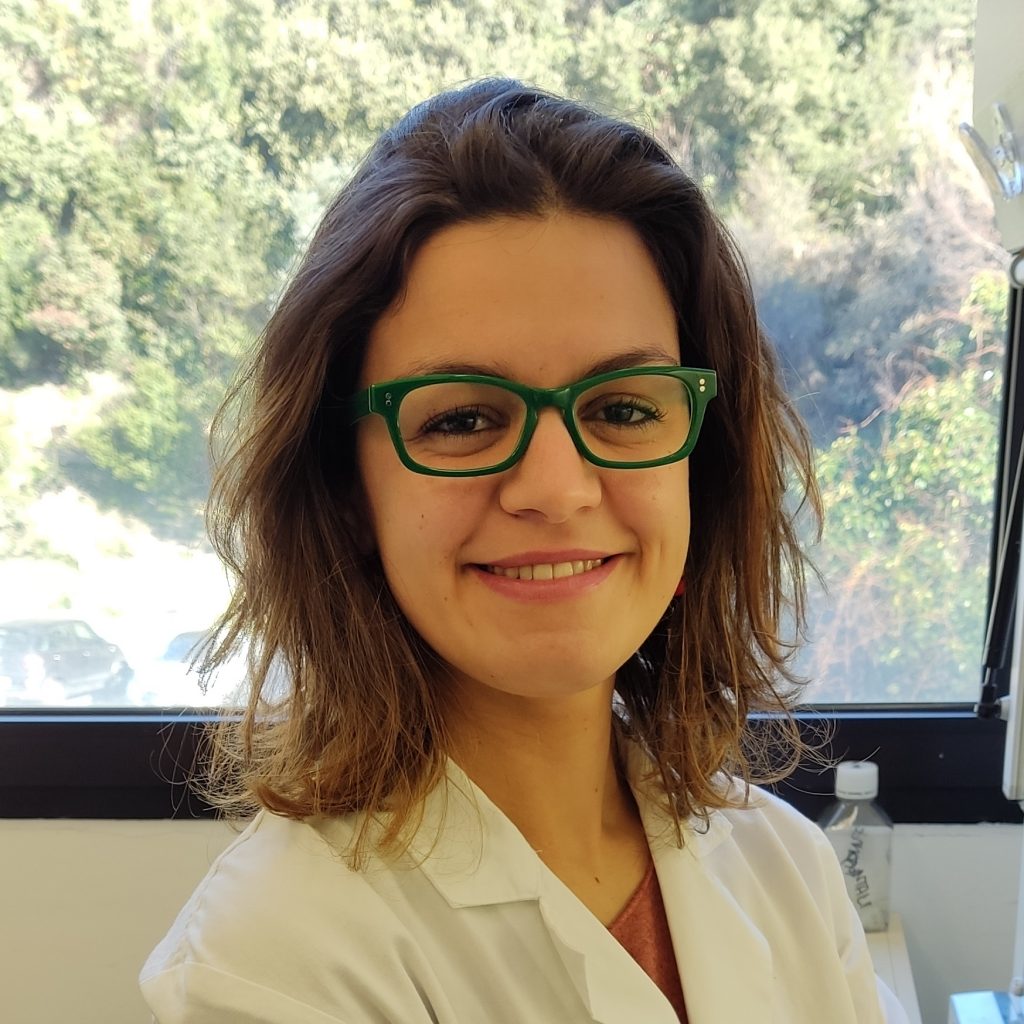
Marta Bottero
(Tap/Click on the name to see the bio sketch)

Marta Bottero
Department of Molecular Medicine, «Sapienza» University of Rome (Italy) • Marta Bottero is a research fellow at the Experimental Neuroscience Lab, IRCCS San Martino Hospital, Italy. She obtained her Bachelor's degree in Biotechnology, and then a Master's in Pharmaceutical Medical Biotechnology at University of Genoa. The main focus of her research is the etiopathogenesis of multiple sclerosis (MS), a chronic and autoimmune disorder affecting the central nervous system. Particularly, she is investigating the role of a membrane-spanning proteoglycan, nerve-glial antigen 2 (NG2) in neuroinflammation and its possible role in the autoimmune response and the role of tolerogenic dendritic cells for a suitable adjunct therapeutic approach in MS.
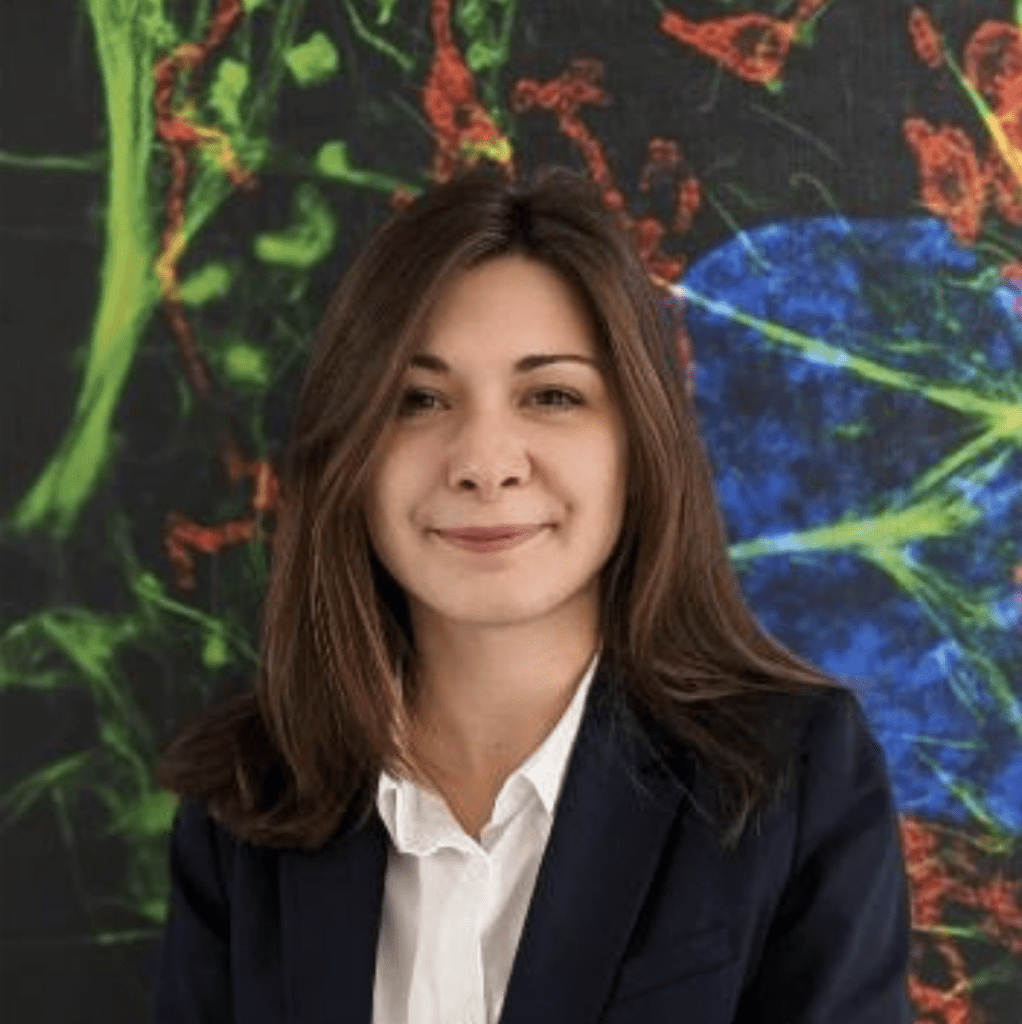
Elena Cerutti
(Tap/Click on the name to see the bio sketch)

Elena Cerutti
IRCCS San Martino Hospital, Genoa (Italy) •
Elena Cerutti is a researcher at the IRCCS Ospedale Policlinico San Martino, Italy. She obtained her Ph.D. at the NeuroMyoGène Institute in Lyon, where she focused on the Nucleotide Excision Repair (NER) mechanism, uncovering the dynamic displacement and repositioning of ribosomal DNA during UV-induced damage repair, mediated by ß-actin and Nuclear Myosin I, and highlighting XAB2’s critical role in Transcription-Coupled Repair. During her postdoc at the Istituto Italiano di Tecnologia, she employed advanced optical nanoscopy to investigate oncogene-induced genomic damage in Acute Promyelocytic Leukemia (APL), unveiling how the PML-RARα oncogene disrupts nuclear architecture and chromatin organization. Currently, her research focuses on glioma stem cells, leveraging advanced imaging and molecular techniques to study DNA repair mechanisms in gliomas, aiming to identify biomarkers and therapeutic targets to improve outcomes for patients with these challenging tumors.
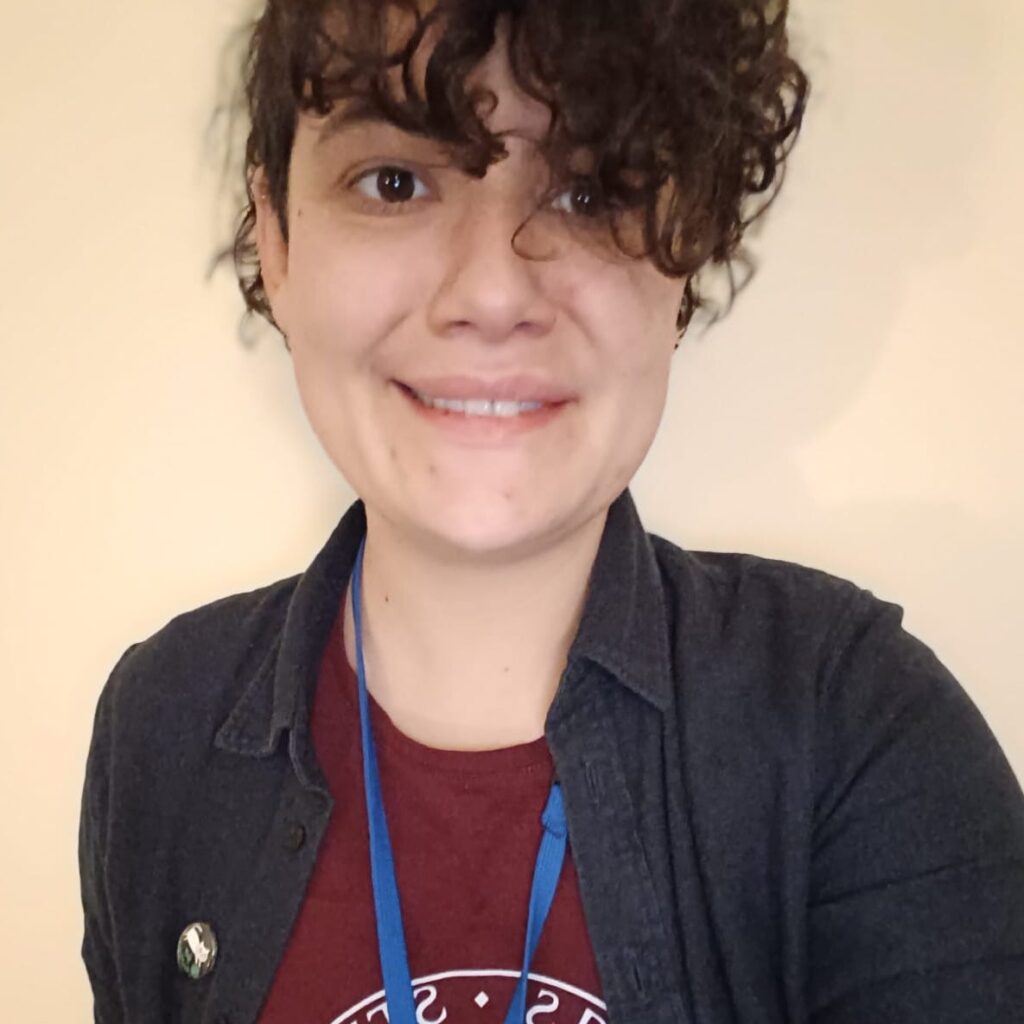
Ludovica Iovino
(Tap/Click on the name to see the bio sketch)

Ludovica Iovino
Neuroscience Institute, National Research Council, Pisa (Italy) •
Ludovica completed her Master’s Degree in Biology at the University of Florence in 2015. She subsequently obtained the PhD in Biomedical Sciences, specializing in Neurophysiology, at the Department of Experimental and Clinical Medicine at the same university. Following her PhD, she focused on studying the physiology and pathophysiology of astrocytes during a three- year postdoctoral fellowship in Dr. Laura Civiero’s laboratory at the University of Padova. In 2022, Ludovica joined Dr. Laura Baroncelli’s lab at the Neuroscience Institute of the National Research Council in Pisa for her second postdoctoral position. Currently, she continues her work in the same laboratory as a Research Scientist, with her primary focus on developing a novel gene therapy approach to treat an ultra-rare X-linked disorder known as Creatine Transporter Deficiency.
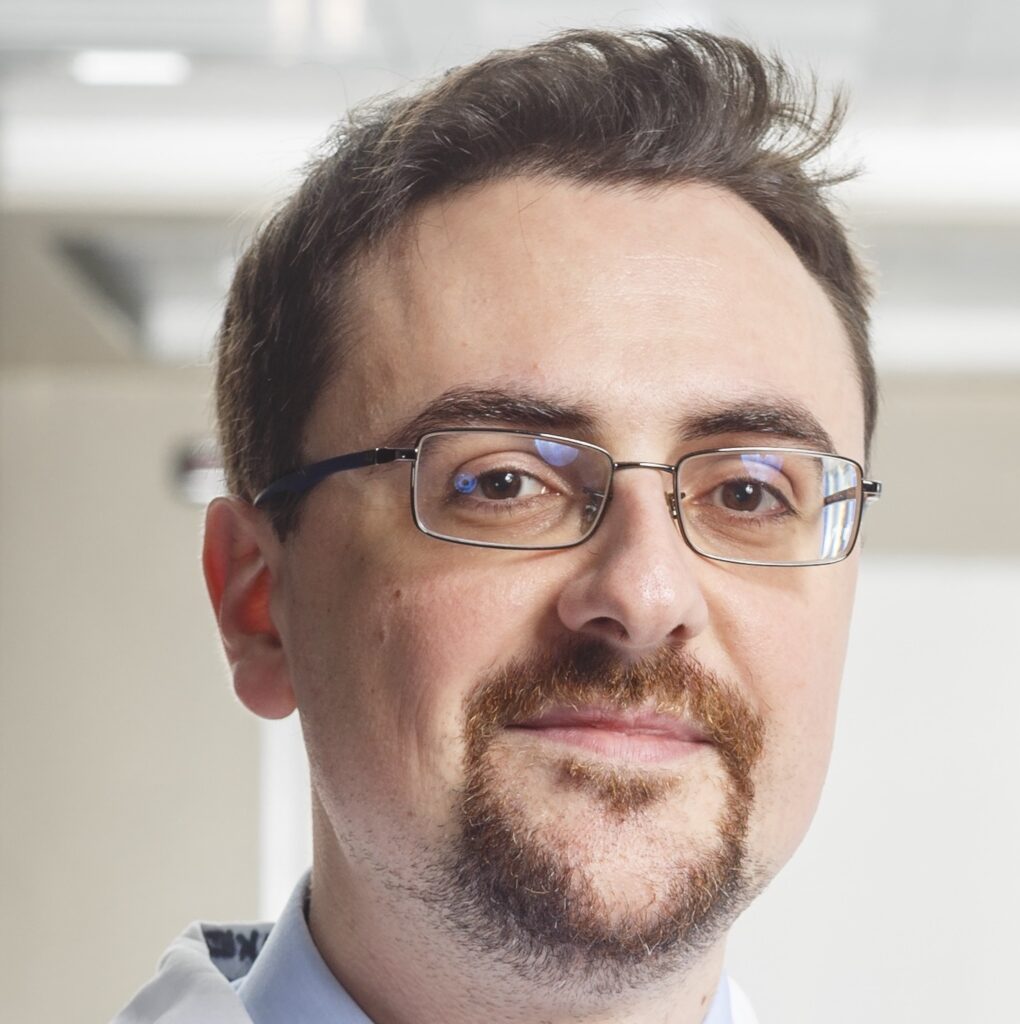
Umberto Manera
(Tap/Click on the name to see the bio sketch)

Umberto Manera
"Rita Levi Montalcini" Department of Neuroscience, University of Turin (Italy) • Umberto Manera is an Assistant Professor and Neurologist at the 'Rita Levi Montalcini' Department of Neuroscience, University of Turin, and the Neurology Unit of "Città della Salute e della Scienza di Torino." Since 2010, he has been an integral part of the ALS Center in Turin, focusing on clinical research in Amyotrophic Lateral Sclerosis (ALS). His scientific work spans several key areas, including neuroepidemiology, multimodal phenotyping, respiratory function assessment, and liquid and neuroimaging biomarkers. He also serves as a sub-investigator in multiple randomized clinical trials for ALS. In the past four years, Dr. Manera has been actively involved in two EU HORIZON 2020-funded projects (BRAINTEASER and HEREDITARY). These projects focus on integrating data, developing digital health technologies, and applying artificial intelligence in the study of neurodegenerative diseases. Furthermore, Dr. Manera was recently certified as a Digital Neurologist (CEPAS - UNI CEI EN ISO/IEC 17024).
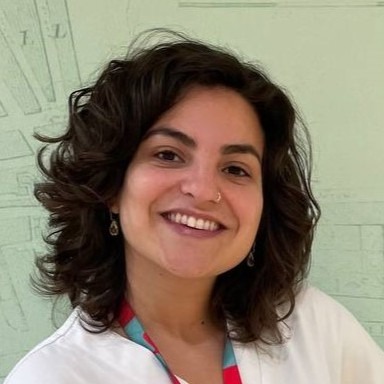
Noemi Marino
(Tap/Click on the name to see the bio sketch)

Noemi Marino
Istituto Romagnolo per lo Studio dei Tumori (IRST) and University of Bologna (Italy) • Noemi Marino obtained her master degree in Biomolecular and Medical Biotechnology at the University of Verona, where she performed in vivo studies on the interaction between glioblastoma and glial cells to revert the state of neuroinflammation, indirectly acting on the tumor. Later, she studied neuroinflammation in a mouse model of SMA at the Neuroscience Institute Cavalieri Ottolenghi in Turin, in Prof. Vercelli and Prof. Boido’s group. She is currently a biologist researcher at the Romagna Institute for Tumors Study (IRST) in Meldola (FC), where she is investigating new therapeutic strategies for Glioblastoma treatment, primarily with 3D in vitro models. She is also enrolled in the PhD program on Biomedical and Neuromotor Sciences at the University of Bologna, with a PhD project on cognitive deficits induced by radiation therapy in a PDOX mouse model of glioblastoma.
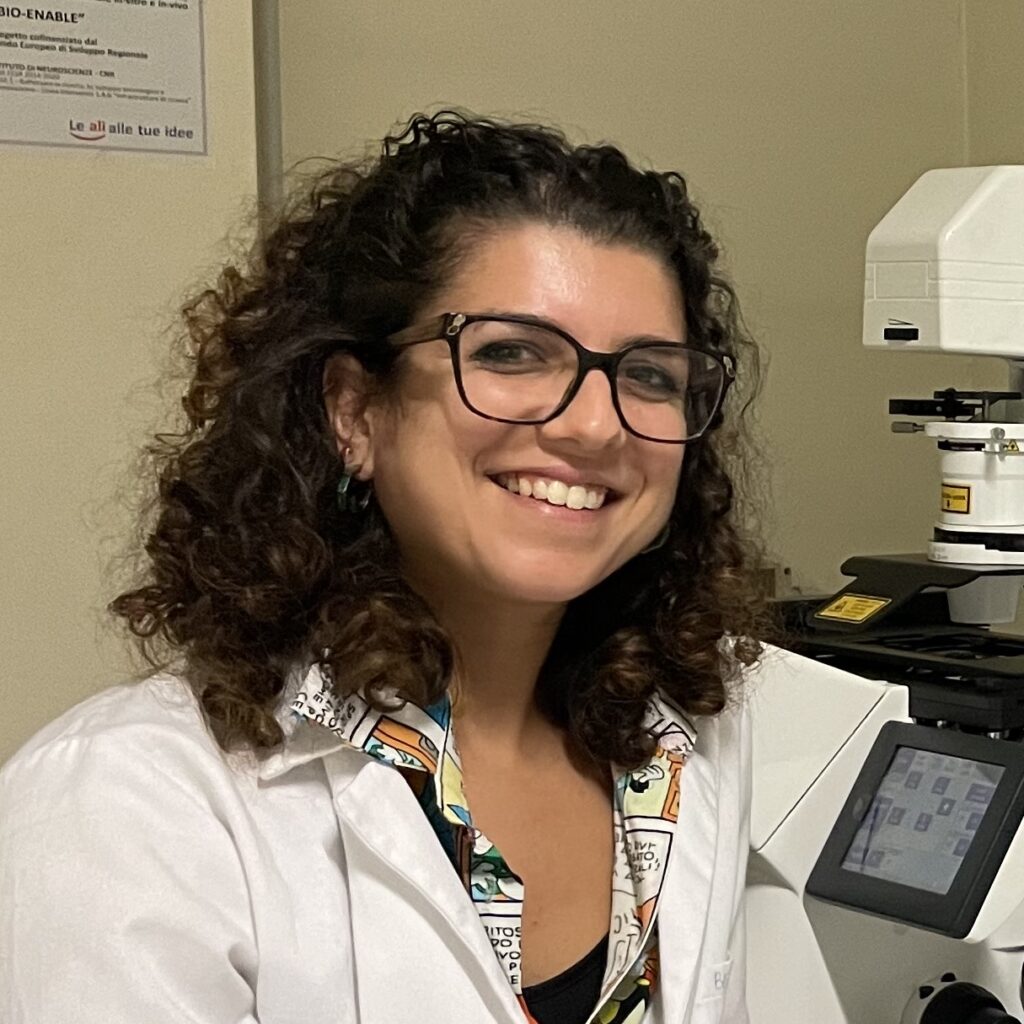
Elisabetta Mori
(Tap/Click on the name to see the bio sketch)

Elisabetta Mori
Scuola Normale Superiore, Pisa (Italy) • Elisabetta Mori is an enthusiastic PhD Student in Neuroscience at Scuola Normale Superiore (SNS) Pisa. She is currently carrying out her research activity at the CNR Neuroscience Institute, in Pisa, under the scientific responsibility of Dr Eleonora Vannini and Dr Mario Costa. The focus of her research is to understand possible therapeutic approaches for glioblastoma. She started her research journey during her Master’s in Neuroscience, where she graduated with the highest grade in 2020. During her PhD, she spent nine months working at the Immunology Department in Austria, working under the scientific supervision of Dr Stefano Angiari, to gain new skills and knowledge about cancer immunology. Now, she uses preclinical rodent models and cell cultures (human and murine) as experimental tools with the final aim to advance our understanding of therapeutic strategies for glioblastoma.
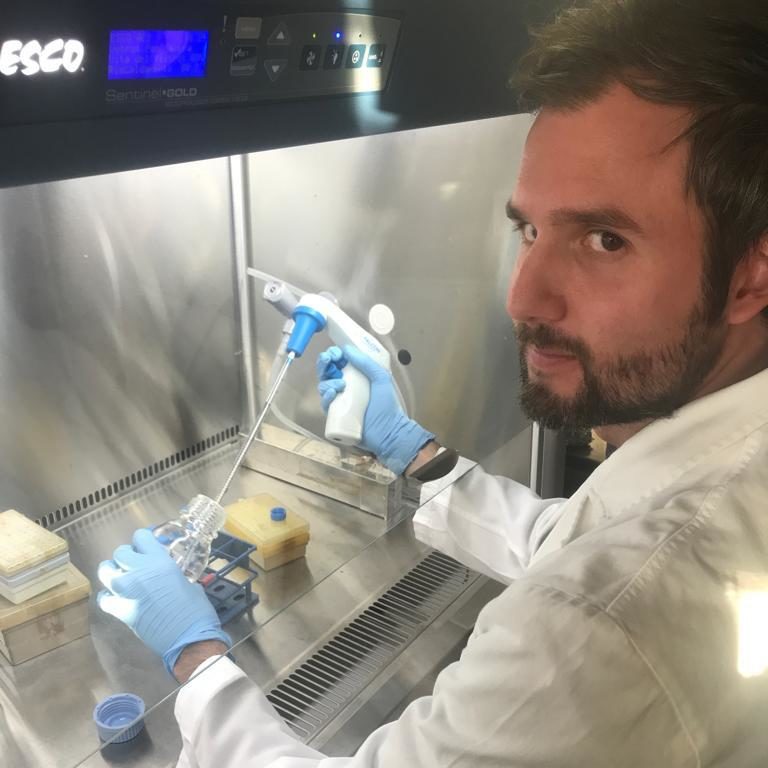
Samuele Negro
(Tap/Click on the name to see the bio sketch)

Samuele Negro
University of Padova (Italy) • Samuele obtained a Master degree in Biologia Sanitaria at the University of Padova in 2012, where he then successfully obtained a PhD in Neurobiology working at the Department of Biomedical Sciences, in the Neurotoxins, Neuroparalysis and Regeneration Lab under the supervision of Prof. Cesare Montecucco. After this, he continued in the same laboratory as postdoctoral Research Fellow and during this period he joined the Prof. Giampietro Schiavo Lab at Sobell Dept of Motor Neuroscience and Movement Disorders, UCL Institute of Neurology in London with an EMBO short-term post-doctoral fellowship in 2018. He is now a recipient of a Starting Grant Ricerca Finalizzata Ministero della Salute, working at the Clinica Neurologica, Azienda Ospedale-Università Padova. In general, his main interests lay in searching for molecular mediators and pathways involved in peripheral nerve regeneration to identify new targets for the development of drugs to sustain and improve this process.
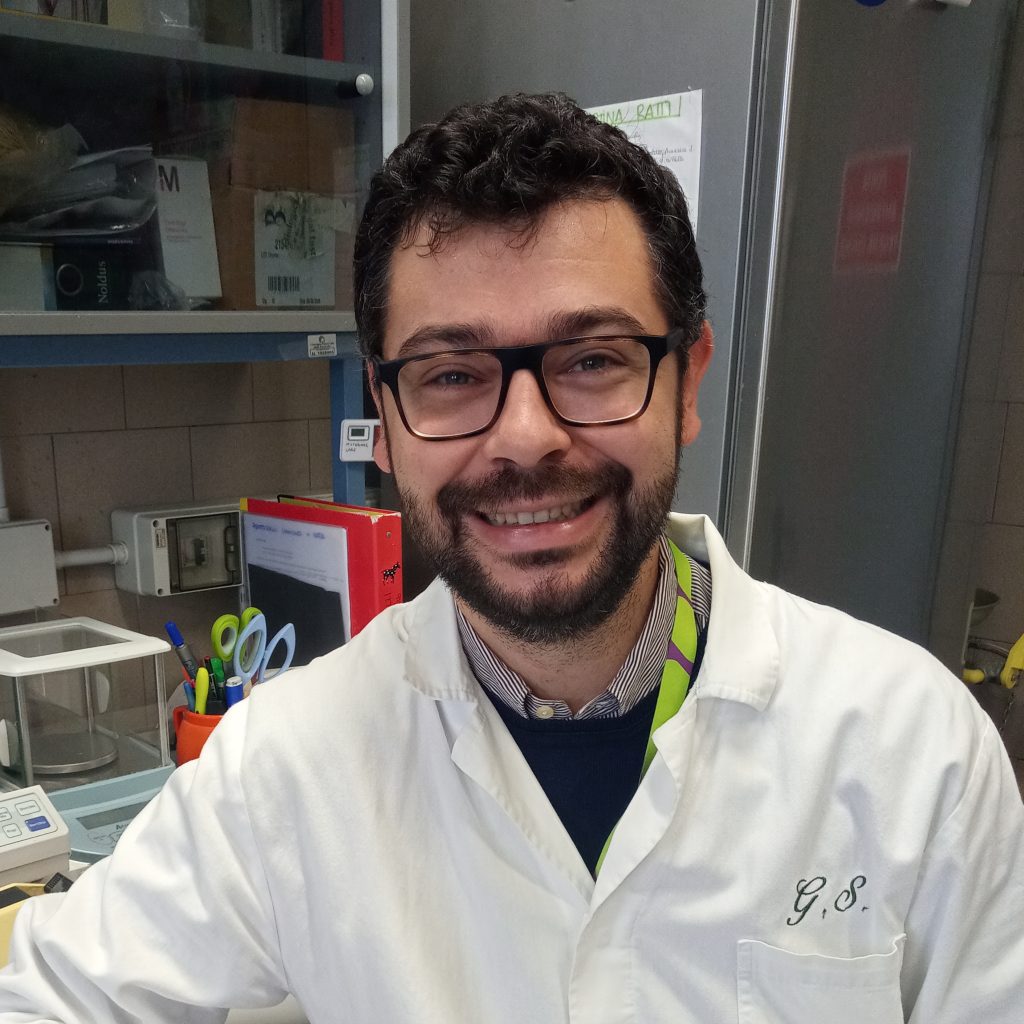
Gabriele Sansevero
(Tap/Click on the name to see the bio sketch)

Gabriele Sansevero
Neuroscience Institute – National Research Council of Italy, Pisa (Italy) • Gabriele Sansevero is a fixed-term researcher at the Neuroscience Institute of the CNR (Pisa). He obtained a Bachelor’s Degree in Ecological and Biodiversity Sciences and a Master’s Degree in Applied Biology from the University of Pisa and a PhD in Neuroscience from Florence University. He is interested in studying the impact of lifestyle on different neurodevelopmental disorders by combining electrophysiological recordings and behavioural studies.
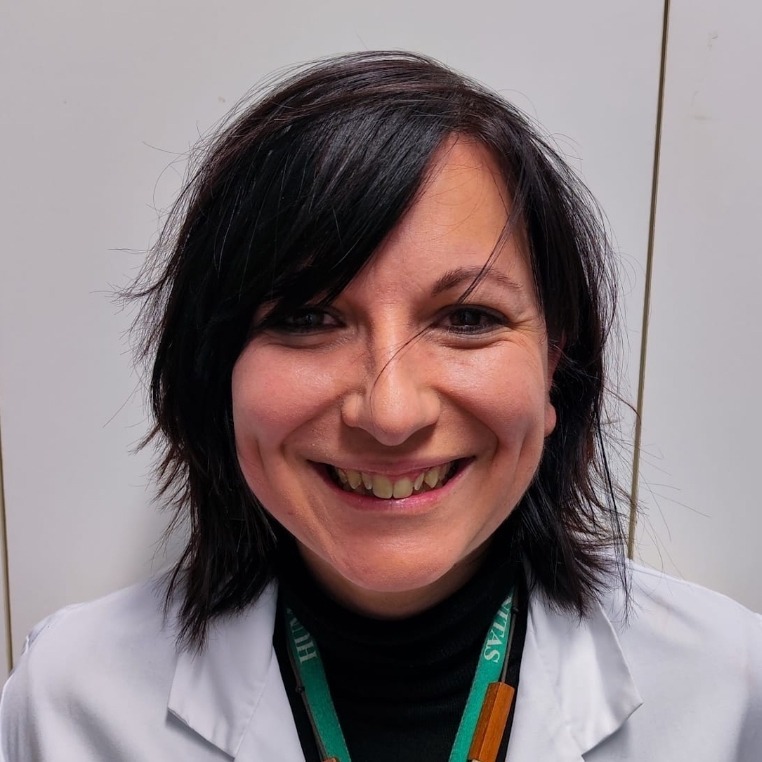
Erica Tagliatti
(Tap/Click on the name to see the bio sketch)

Erica Tagliatti
IRCCS Humanitas Research Hospital, Rozzano (Italy) and University College London, London (UK) • Erica Tagliatti got her MSc in Medical and Pharmaceutical Biotechnology at the University of Genoa (Italy) and, later, her PhD in Neuroscience and Brain Technology at the Italian Institute of Technology (Genoa, Italy) studying the role of Synapsins and small GTPases in regulating neurotransmission. In 2016, Erica moved to the department of Clinical and Experimental Epilepsy at University College London (UK) as a Research Associate to characterize the mechanisms of novel de-novo mutations in synaptic proteins associated with Synaptopathies and to develop novel optical tools to study synaptic function. In 2021, Erica won a HiPPO (High-Profile Post-doctoral Fellowship), held by Fondazione Humanitas per la Ricerca to investigate the crosstalk between neurons and immune microglia cells during early development at IRCCS Humanitas Research Hospital. Meanwhile, she is currently a visiting scientist at University College London, where she is collaborating in characterizing the mechanisms behind Syt1 and 7 co-regulation of neurotransmission. Erica is interested in studying the mechanisms of synaptic disfunctions underlying neurodevelopmental disorders by combining imaging and functional studies.

